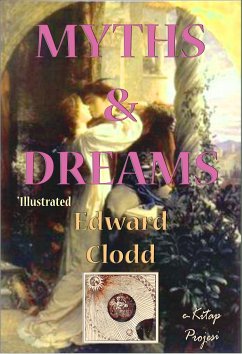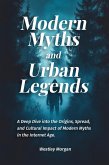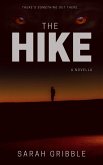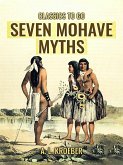"Unchecked by external truth, the mind of man has a fatal facility for ensnaring, entrapping, and entangling itself. But, happily, happily for the human race, some fragment of physical speculation has been built into every false system. Here is the weak point. Its inevitable destruction leaves a breach in the whole fabric, and through that breach the armies of truth march in."
Sir H. S. Maine.
MYTH: ITS BIRTH AND GROWTH.
CHAPTER I
ITS PRIMITIVE MEANING.
It is barely thirty years ago since the world was startled by the publication of Buckle's History of Civilisation, with its theory that human actions are the effect of causes as fixed and regular as those which operate in the universe; climate, soil, food, and scenery being the chief conditions determining progress.
That book was a tour de force, not a lasting contribution to the question of man's mental development. The publication of Darwin's epoch-making Origin of Species[1] showed wherein it fell short; how the importance of the above-named causes was exaggerated and the existence of equally potent causes overlooked. Buckle probably had not read Herbert Spencer's Social Statics, and he knew nothing of the profound revolution in silent preparation in the quiet of Darwin's home; otherwise, his book must have been rewritten. This would have averted the oblivion from which not even its charm of style can rescue it. Its brilliant but defective theories are obscured in the fuller light of that doctrine of descent with modifications by which we learn that external circumstances do not alone account for the widely divergent types of men, so that a superior race, in supplanting an inferior one, will change the face and destiny of a country, "making the solitary place to be glad, and the desert to rejoice and blossom as the rose." Darwin has given us the clue to those subtle and still obscure causes which bring about, stage by stage, the unseen adaptations to requirements varying a type and securing its survival, and which have resulted in the evolution of the manifold species of living things. The notion of a constant relation between man and his surroundings is therefore untenable.
The object of this book is to present in compendious form the evidence which myths and dreams supply as to primitive man's interpretation of his own nature and of the external world, and more especially to indicate how such evidence carries within itself the history of the origin and growth of beliefs in the supernatural.
The examples are selected chiefly from barbaric races, as furnishing the nearest correspondences to the working of the mind in what may be called its "eocene" stage, but examples are also cited from civilised races, as witnessing to that continuity of ideas which is obscured by familiarity or ignored by prejudice.
Had more illustrations been drawn from sources alike prolific, the evidence would have been swollen to undue dimensions without increasing its significance; as it is, repetition has been found needful here and there, under the difficulty of entirely detaching the arguments advanced in the two parts of this work.
Dieser Download kann aus rechtlichen Gründen nur mit Rechnungsadresse in A, B, BG, CY, CZ, D, DK, EW, E, FIN, F, GR, H, IRL, I, LT, L, LR, M, NL, PL, P, R, S, SLO, SK ausgeliefert werden.









